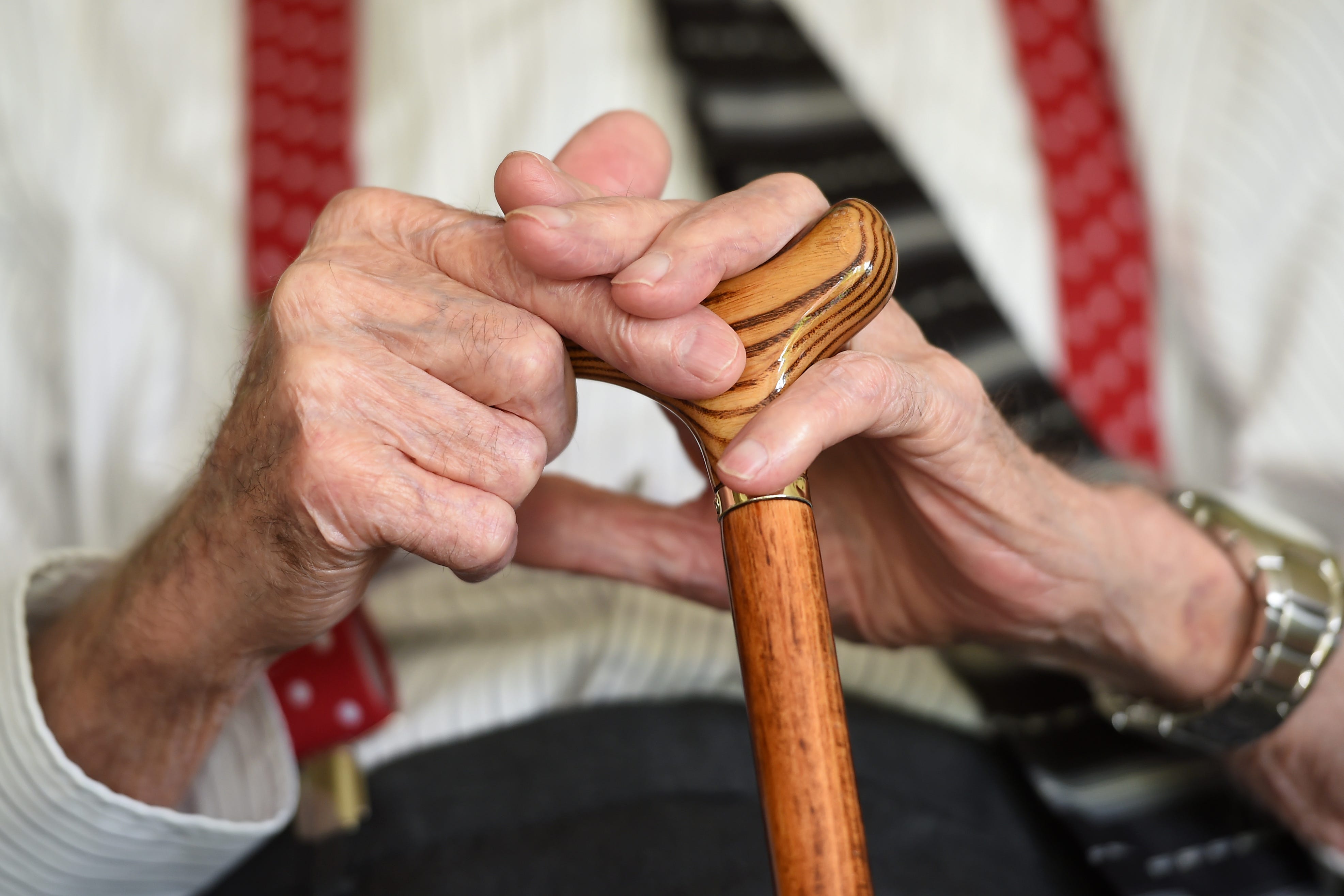Dementia diagnoses in England at record high
The latest data shows a record 487,432 people had a diagnosis in June.

Your support helps us to tell the story
From reproductive rights to climate change to Big Tech, The Independent is on the ground when the story is developing. Whether it's investigating the financials of Elon Musk's pro-Trump PAC or producing our latest documentary, 'The A Word', which shines a light on the American women fighting for reproductive rights, we know how important it is to parse out the facts from the messaging.
At such a critical moment in US history, we need reporters on the ground. Your donation allows us to keep sending journalists to speak to both sides of the story.
The Independent is trusted by Americans across the entire political spectrum. And unlike many other quality news outlets, we choose not to lock Americans out of our reporting and analysis with paywalls. We believe quality journalism should be available to everyone, paid for by those who can afford it.
Your support makes all the difference.The number of people in England being diagnosed with dementia is at a record high, according to new figures from the NHS.
The latest data shows a record 487,432 people had a diagnosis in June.
While diagnosis rates are at their highest since the start of the pandemic at 65%, the health service said it still has more to do to meet its ambition of diagnosing 66.7% of the total number of people estimates suggest are living with a form of the disease.
England has one of the highest dementia diagnosis rates in the world, with high-income countries typically in the range of 20%-50%, according to the NHS.
If you have noticed that someone has symptoms, please encourage them to visit their GP for an assessment – the sooner someone is seen the quicker the NHS can help
Its staff across the country are assessing care home residents to support identification of people who may have dementia to boost numbers further for patients and their families.
A timely diagnosis is vital to ensure more people get the support and care they need to live with the illness.
Thousands more individuals are being diagnosed each month and more medication reviews are being done within 12 months.
The NHS is calling on people to come forward and get checked if they have any common early signs or symptoms.
Dr Jeremy Isaacs, national clinical director for dementia, NHS England, said: “Getting a diagnosis of dementia is the first step in supporting people, with a wide range of NHS services able to help.
“NHS staff have worked hard to recover services with the number of people with a diagnosis rising significantly over the last year, and now at a record level, but there is more work to be done.
“Thousands more individuals are being diagnosed each month and more medication reviews are being done within 12 months.
“Common early symptoms of dementia include forgetting bits of information, saying the same thing repeatedly, struggling to follow a conversation or find the right word, and being confused about time and place. Usually these problems will be more obvious to the person’s family and friends than to the individual themselves.
“If you have noticed that someone has symptoms, please encourage them to visit their GP for an assessment – the sooner someone is seen the quicker the NHS can help.”
Alzheimer’s Society policy manager Dr Alex Osborne welcomed the progress but stressed the importance of early diagnosis.
She said: “An early, accurate diagnosis is vital for unlocking care, support, and treatment.
“We’re close to meeting the existing target of a 66.7% diagnosis rate – so now we’d like to see bold, ambitious but achievable new targets set for the future to ensure everyone gets the diagnosis they need.”
We are calling on the new Government to put dementia on the agenda and deliver expert and personalised support for people after a diagnosis, as well as increasing access to specialist dementia nursing
Dementia UK’s head of policy, campaigns and public affairs Andrew Pike said: “It is positive that dementia diagnosis rates are on track to recover their pre-pandemic levels and a step closer to meeting the national target rate. However, for a diagnosis to unlock the support that a family needs, it is also essential that we see more done to bridge the gap between health and social care systems.
“Dementia is a complex condition, and, with diagnosis rates increasing, disparities risk being further exacerbated by a lack of specialist post-diagnostic support. For too long tens of thousands of people have been left to cope the with the devastating effects of dementia alone.
“That is why we are calling on the new Government to put dementia on the agenda and deliver expert and personalised support for people after a diagnosis, as well as increasing access to specialist dementia nursing, like that offered by our Admiral Nurses, in hospital settings.”
The latest figures show 86,434 people with a dementia diagnosis had their medication reviewed in the preceding 12 months.
The figure for June 2023 was 77,112.